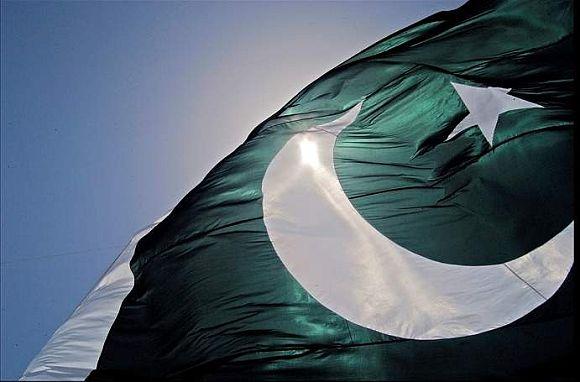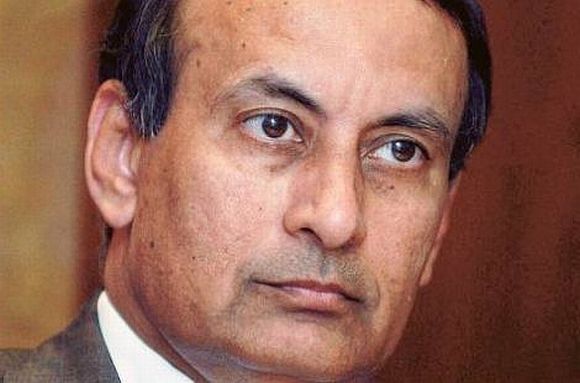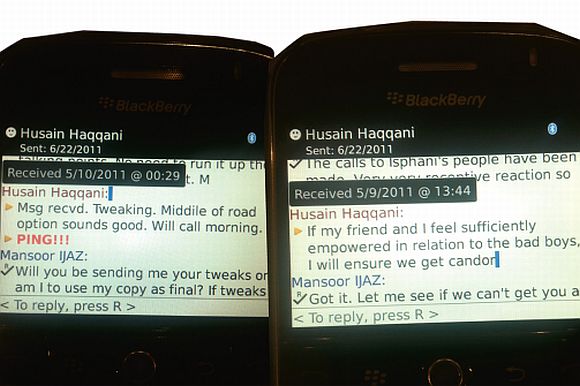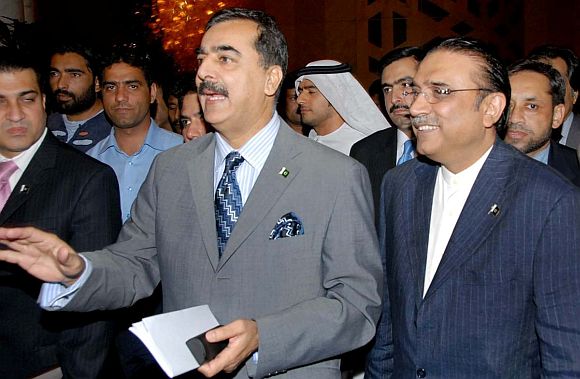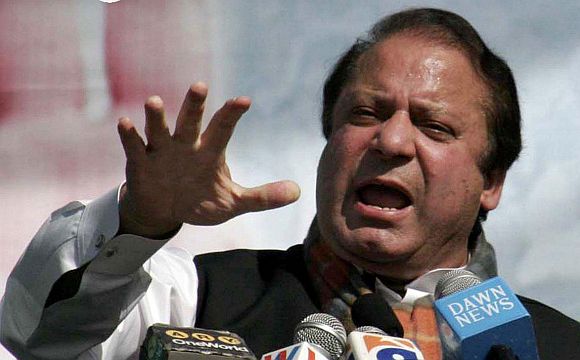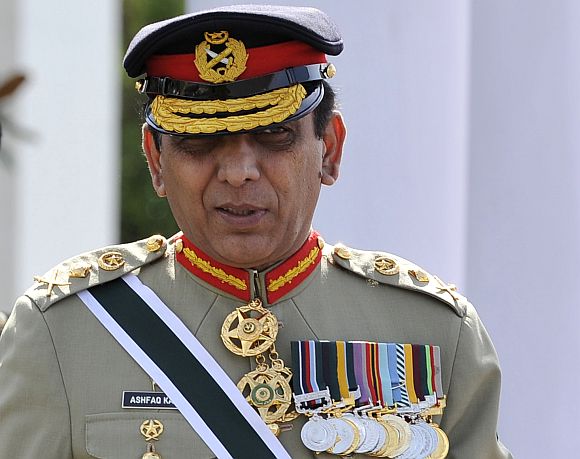 | « Back to article | Print this article |
Danger to Pakistan has been averted
Pakistan President Asif Ali Zardari and the United States have reasons to be gratified by the turn of events in the country with regard to the memogate scandal. B Raman analyses
The war of nerves involving the elected executive, the army and the judiciary in Pakistan over the so-called memogate has noticeably subsided with all the three withdrawing from the brink for the present.
The main credit for the thaw should go to Chief Justice Iftikhar Mohammad Chaudhury of the country's supreme court, who, heading a nine-member bench of the court, ordered the removal of the restrictions on the foreign travel of Hussain Haqqani, the former Pakistani ambassador to the United States, on January 30.
The bench ordered the removal of the travel restrictions after it became apparent that Mansoor Ijaz, the US citizen of Pakistani origin, on whose allegations the Supreme Court ordered an inquiry by a judicial commission into the memogate affair, was avoiding coming to Pakistan to testify before the commission on the ground that there could be threats to his security. He wanted his statement to be recorded in Europe, to which the commission was not agreeable.
Click on NEXT to read further...
Get Realtime News Updates from Pakistan here
Danger to Pakistan has been averted
The evasion and the reluctance of Ijaz to come to Pakistan considerably weakened the case against Haqqani and the credibility of Ijaz, as the principal witness. While keeping the inquiry by the judicial commission going and giving it a two-month extension, the bench headed by the chief justice lifted the restrictions on the travel of Haqqani, who reportedly left for Dubai on January 31.
President Asif Ali Zardari and the United States, with both of whom Haqqani has had a good equation, have reasons to be gratified by the bench's decision.
If Ijaz had testified before the commission and if the latter had concluded that his allegations were correct, Haqqani might have been found guilty of an act of treason for seeking US help against the Pakistan Army and this might have made Zardari's position untenable.
This danger has now been averted as a result of Ijaz's reluctance to come to Pakistan and testify before the judicial commission.
Click on NEXT to read further...
Danger to Pakistan has been averted
The suspicion that Ijaz, who is a US citizen of Pakistani origin, avoided testifying after having made the initial allegations against Haqqani, under US pressure would remain strong.
The US would not have wanted either Haqqani or Zardari, with both of whom it has had close contacts since the days of late Benazir Bhutto, to suffer politically as a result of any adverse finding of the commission.
If Ijaz had gone ahead and helped the army and the Inter-Services Intelligence by testifying against Haqqani, he would have stood in danger of meeting the same fate as Gulam Nabi Fai, another US citizen of Pakistani origin, who is now facing trial in the US on a charge of having links with the ISI.
Chief Justice Chaudhury has come out creditably from the affair. There is no reason to believe that the decision to remove the curbs on Haqqani was taken by the bench under any external pressure.
Click on NEXT to read further...
Danger to Pakistan has been averted
It appears to have been an independent decision taken after an objective evaluation of the case in the light of the evasion and reluctance of Ijaz. This would further strengthen the reputation of the chief justice as an independent-minded judge not amenable to any pressure either from the executive or the army.
The weakening of Ijaz's credibility has also deprived the army of any pretext for intervention on the ground that the memogate could have endangered national security. This would give a breather to the executive.
During the entire war of nerves that lasted nearly two months, Zardari and Prime Minister Yousef Raza Gilani conducted themselves with self-assurance and dignity, without letting themselves be bulldozed into any hasty or panic reaction that might have led to a confrontation with the army.
Click on NEXT to read further...
Danger to Pakistan has been averted
The loser in the entire affair will be Nawaz Sharif, the leader of the Pakistan Muslim League, who was instrumental in getting a judicial enquiry initiated in preference to the enquiry by the national security committee of the parliament, in the hope that an adverse finding by the judicial commission might make the position of Zardari untenable and set in motion a train of events leading to premature elections to the national assembly.
There is every reason to believe that his calculations have proved wrong.
While the executive and the judiciary have emerged with their reputation intact, if not enhanced, the army and the opposition have suffered some embarrassment. This makes the chances of a classical coup by the generals even less likely than before.
While the memogate affair is in the process of being defused, there are indications that the differences between the executive and the army over relations with the US continue.
Click on NEXT to read further...
Danger to Pakistan has been averted
According to reliable sources, while Zardari is keen that the time has come to end the confrontation with the US, the army is still dragging its feet on the question of re-opening the NATO's logistic supply routes to Afghanistan from the Karachi port and handing over to the US a Pakistani doctor, who had allegedly collaborated with the Central Intelligence Agency in checking the identity of Al Qaeda chief Osama bin Laden before the Abbottabad raid.
These two issues have defied a solution due to the sulking by the Pakistani Army over a US/NATO air attack on a Pakistani border post in November that led to the death of over 20 military/paramilitary personnel.
Gen Ashfaq Pervez Kayani, the chief of the army staff, looks upon these issues as purely within the competence of the Army. Zardari is not in a position to have the executive's will prevail in this matter.
While the lack of convergence between the executive and the army over relations with the US continues, there is so far no reason to fear that this could lead to a confrontation between the two.
Click on NEXT to go further...
